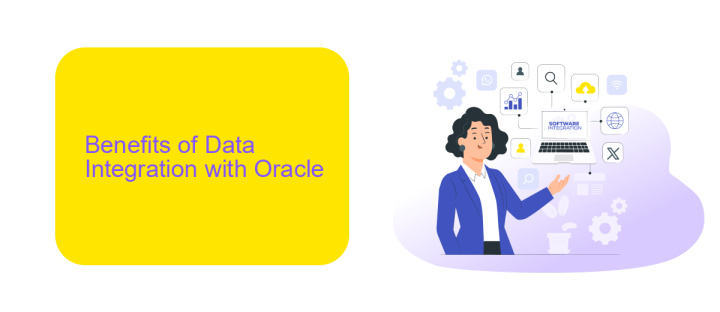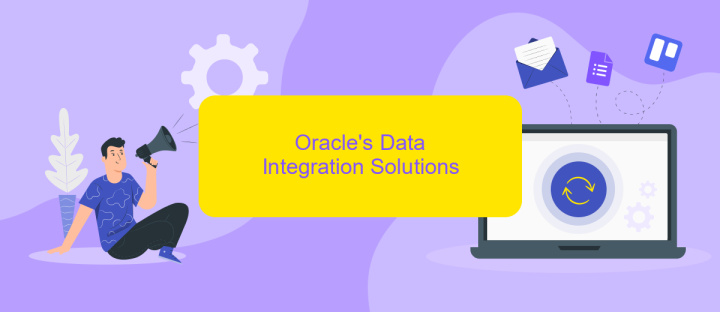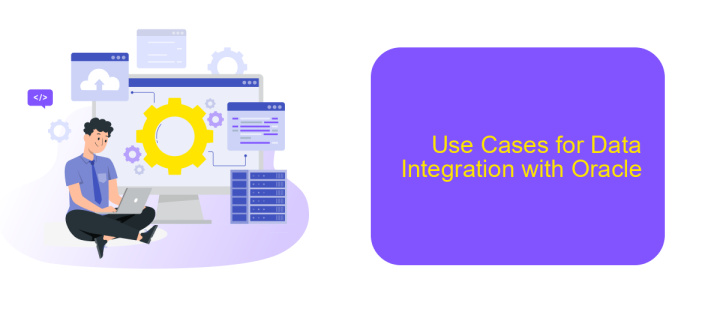Data Integration Oracle
Data integration is a crucial aspect of modern business operations, enabling seamless data flow across various platforms and systems. Oracle, a leader in database technology, offers robust solutions for data integration that ensure efficiency, accuracy, and scalability. This article explores the key features, benefits, and best practices of Oracle's data integration tools, helping organizations optimize their data management strategies.
Introduction
Data integration is a critical aspect of modern business operations, enabling the seamless flow of information across various systems and platforms. Oracle, as a leading provider of database management solutions, offers comprehensive tools and services to facilitate efficient data integration. These tools help organizations synchronize, consolidate, and transform data from multiple sources, ensuring data consistency and accuracy.
- Oracle Data Integrator (ODI) for high-performance data movement and transformation.
- Oracle GoldenGate for real-time data integration and replication.
- Oracle Enterprise Data Quality for data cleansing and enrichment.
- ApiX-Drive for easy setup and automation of data integration processes.
By leveraging these tools, businesses can optimize their data workflows and enhance decision-making processes. For instance, ApiX-Drive offers an intuitive interface for connecting various applications and automating data transfers, reducing manual effort and minimizing errors. Whether you are integrating data for analytics, reporting, or operational purposes, Oracle's robust solutions ensure that your data is timely, accurate, and actionable.
Benefits of Data Integration with Oracle

Integrating data with Oracle offers numerous benefits, enhancing the efficiency and effectiveness of business operations. One of the primary advantages is the ability to consolidate data from multiple sources into a single, unified view. This centralization facilitates better decision-making by providing comprehensive insights and analytics. Oracle's robust data integration tools ensure high data quality, consistency, and accuracy, which are crucial for maintaining reliable business intelligence.
Moreover, Oracle's data integration solutions support real-time data processing, enabling businesses to respond swiftly to changing market conditions and customer needs. The integration process can be further streamlined using services like ApiX-Drive, which simplifies the configuration and management of integrations. ApiX-Drive offers a user-friendly interface and pre-built connectors, reducing the complexity and time required for setup. By leveraging these tools, organizations can achieve seamless data flow, reduce operational costs, and enhance overall productivity.
Oracle's Data Integration Solutions

Oracle offers a comprehensive suite of data integration solutions designed to streamline and automate the data management process. These solutions enable organizations to efficiently integrate, transform, and manage data across various platforms and applications, ensuring data consistency and reliability.
- Oracle Data Integrator (ODI): A powerful data integration platform that supports high-performance data movement and transformation.
- Oracle GoldenGate: Real-time data integration and replication solution that ensures high availability and disaster recovery.
- Oracle Enterprise Data Quality (EDQ): A tool that helps maintain data quality by identifying and rectifying data issues.
- Oracle Data Integration Platform Cloud (DIPC): A unified platform that combines Oracle's data integration capabilities with cloud-based services for enhanced flexibility and scalability.
In addition to Oracle's native solutions, third-party services like ApiX-Drive can further enhance data integration processes. ApiX-Drive provides a user-friendly interface for setting up automated integrations between various applications, making it easier to synchronize data without extensive coding. By leveraging both Oracle's robust tools and ApiX-Drive's automation capabilities, organizations can achieve seamless and efficient data integration.
Use Cases for Data Integration with Oracle

Data integration with Oracle is essential for organizations looking to consolidate data from various sources into a unified view. This process enhances decision-making, ensures data consistency, and streamlines business operations. Oracle's robust integration tools facilitate seamless data flow across different systems, making it a preferred choice for enterprises.
One of the primary use cases for Oracle data integration is in the financial sector, where real-time data synchronization is crucial for accurate reporting and compliance. Similarly, healthcare organizations leverage Oracle to integrate patient data from multiple sources, ensuring comprehensive and up-to-date medical records. Retail businesses also benefit by integrating sales, inventory, and customer data to optimize supply chain management and improve customer experiences.
- Migrating legacy systems to modern Oracle databases
- Real-time data synchronization across different platforms
- Integrating cloud-based applications with on-premises systems
- Consolidating data for business intelligence and analytics
- Ensuring data consistency and accuracy across various departments
Tools like ApiX-Drive can further simplify Oracle data integration by providing automated workflows and seamless connectivity between diverse applications. By leveraging such integration platforms, businesses can reduce manual efforts, minimize errors, and accelerate their data integration projects, ultimately driving better business outcomes.
Best Practices for Data Integration with Oracle
To ensure successful data integration with Oracle, it is crucial to start with a clear understanding of your data sources and integration goals. Define the data flow, transformation rules, and target schema. Utilize Oracle's native tools like Oracle Data Integrator (ODI) for seamless data movement and transformation. Regularly monitor data quality and consistency to avoid discrepancies. Implement robust error handling and logging mechanisms to quickly identify and resolve issues during the integration process.
Leveraging third-party integration services like ApiX-Drive can further streamline your data integration efforts. ApiX-Drive offers pre-built connectors and intuitive interfaces that simplify the configuration and management of integrations. This can save time and reduce the complexity associated with custom coding. Ensure that security best practices are followed, including encryption and access controls, to protect sensitive data throughout the integration lifecycle. Regularly review and update your integration processes to adapt to changing business needs and technology advancements.
FAQ
What is Data Integration in Oracle?
Why is Data Integration important?
What are the common challenges in Data Integration?
How can I automate Data Integration processes?
What is the role of ETL in Data Integration?
Apix-Drive will help optimize business processes, save you from a lot of routine tasks and unnecessary costs for automation, attracting additional specialists. Try setting up a free test connection with ApiX-Drive and see for yourself. Now you have to think about where to invest the freed time and money!

